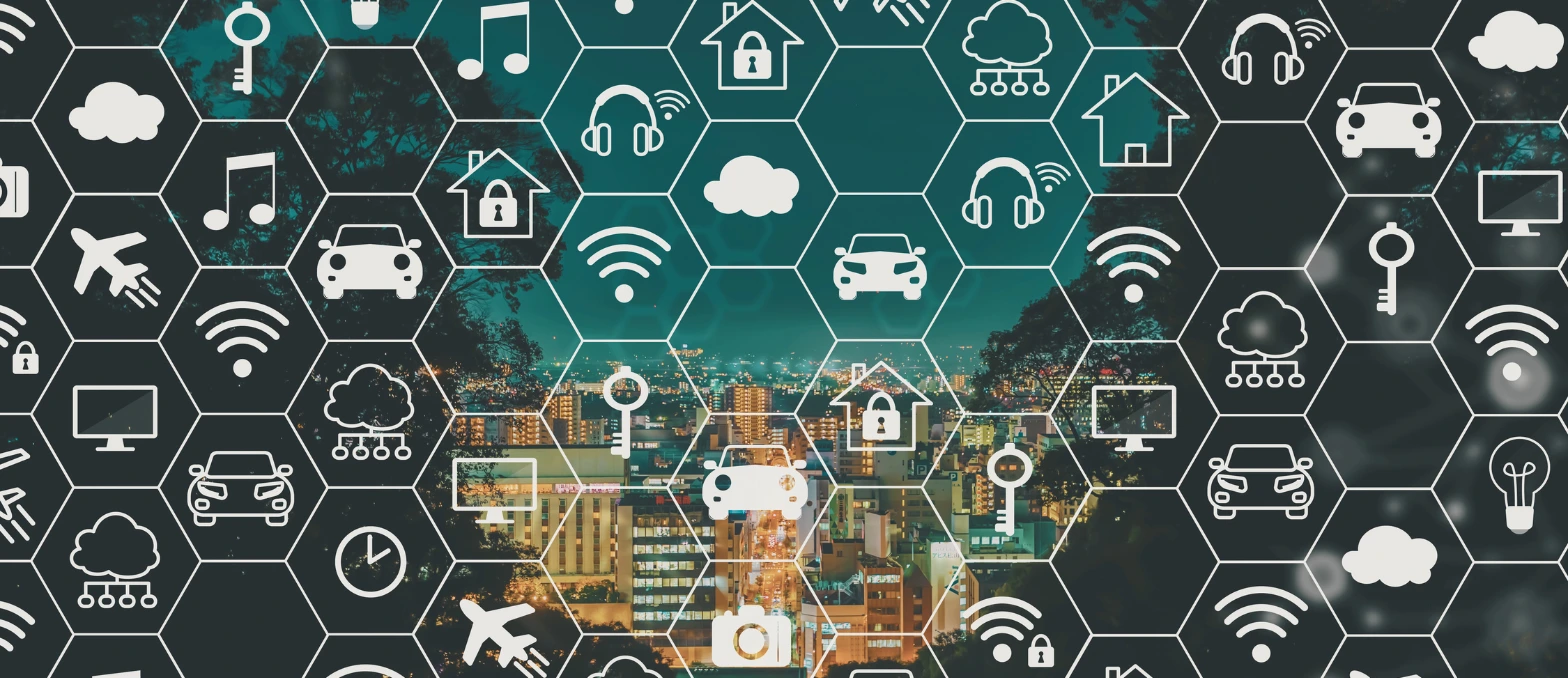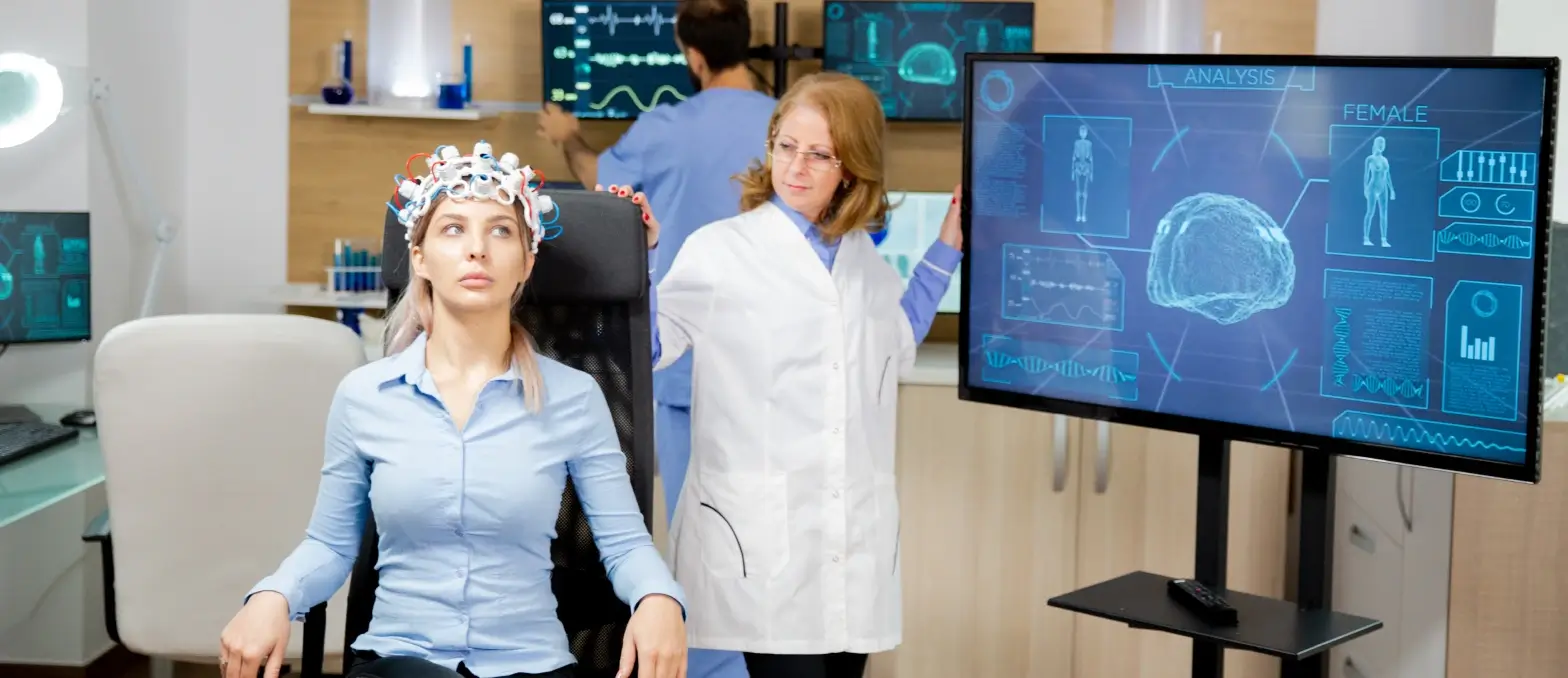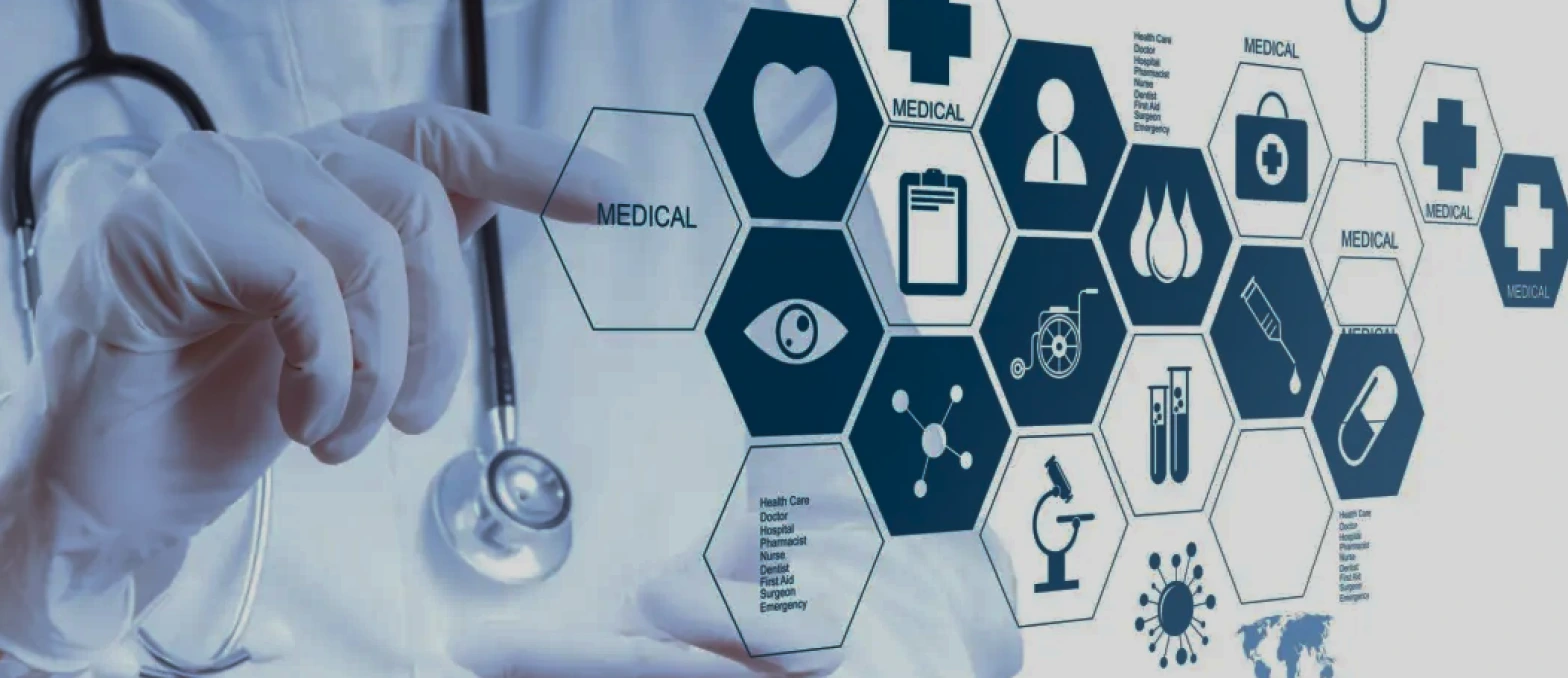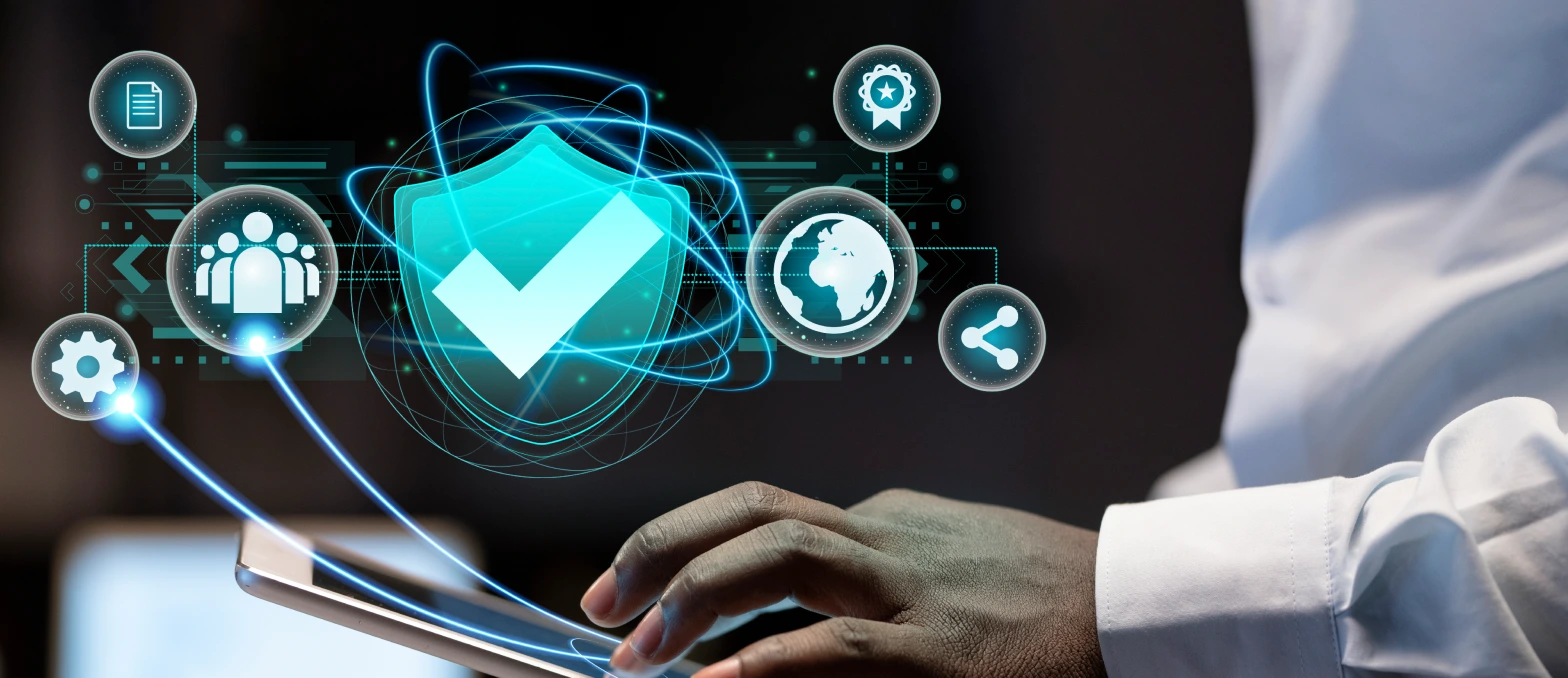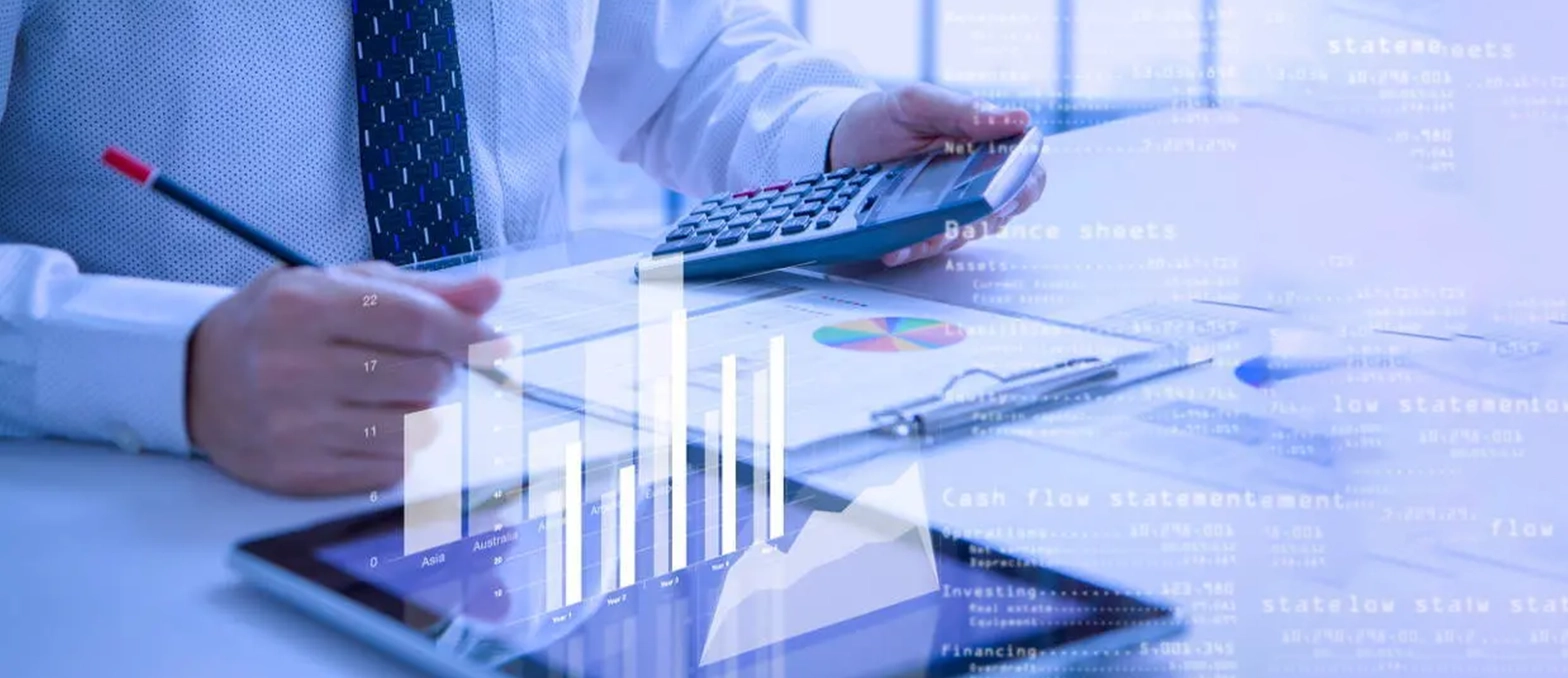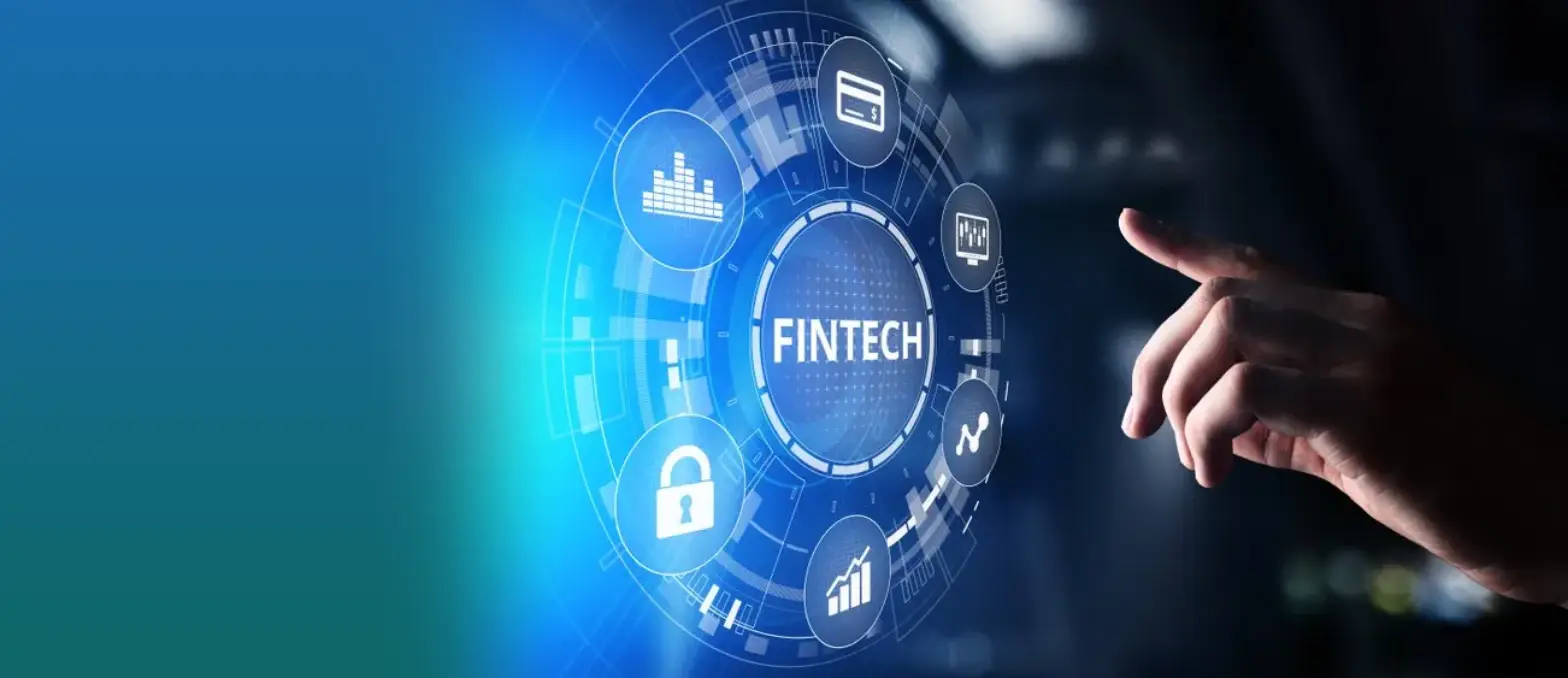Ensuring data is secure and knowing where it came from is the responsibility of companies across all industries. It’s even more crucial for the healthcare sector, where much personal, sensitive information is at risk. When we consider that data incidents are rising, the bar for healthcare institutions is set higher.
Blockchain’s decentralized, cryptographic nature allows for secure storage and transfer of medical records, making it harder for unauthorized parties to access these sensitive records. In addition, it aids in more effectively managing the supply chain for medicines.
Blockchain in healthcare could revolutionize the way medical records are maintained, medical research is conducted, and patient care is provided.
Blockchain in Healthcare: – Stats and Facts You Need to Know
Before we go into the details of what exactly blockchain in healthcare is and the reasons you should utilize it, let’s define this concept using actual figures:
- The global blockchain in the healthcare market was valued at $3.16 billion in the year 2023 and is expected to reach $230.40 billion by 2031 growing at a CAGR of 68.30%.
- Healthcare organizations save nearly about $100 billion each year by implementing blockchain to enhance their IT processes.
- About $242 million – the amount medical and pharmaceutical device companies have invested in blockchain technology to replace their traditional systems in 2021.
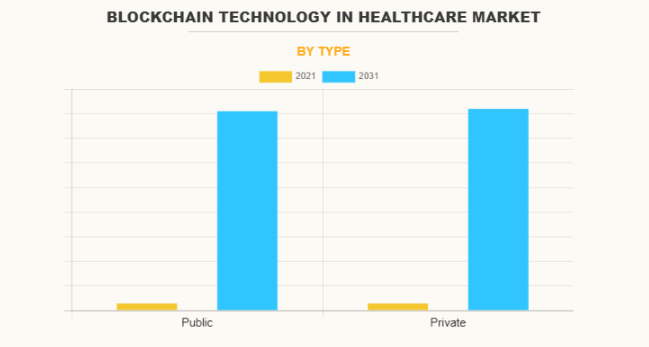
These numbers must grab the attention of anyone planning to be a major player in medical technology. So, let’s examine blockchain’s advantages in healthcare.
Real World Use Cases for Blockchain in Healthcare
Blockchain technology in healthcare offers solutions that enable healthcare institutions for safe and secure collection, analysis, and sharing of patient information. Also blockchain applications in healthcare helps healthcare organisations to verify patient’s medical history, identity, genetic data, and prescriptions. These solutions also grant access and complete ownership of health records to patients, making it easier for them to give or revoke access to the data anytime.
Healthcare organisations can also leverage blockchain with smart contracts to reduce operational costs and enforce transaction’s validity.
Patient Data Management
The most obvious use case of blockchain in healthcare is data management.
For example, a person visiting an institution can feel more secure handing over information such as a social security number and credit card information if they are aware that blockchain encryption is installed. Hackers, on the other hand, will find it harder to penetrate blockchain encryption.
Also, you’ll enjoy secure healthcare information storage for patients and better access to the data. If someone needs access to their test results, they can sign up for their account and find their results without worrying about anyone snooping into the most private details of their lives. At the same time, doctors can access this information without fear of being scrutinized by a stranger.
Tools like a patient medical information portal, commonly known as PHI, guarantee the security of medical records. Electronic health records can be transferred to a new doctor and gathered through IoT devices compatible with a particular blockchain. Medical insurance claims can also be processed quickly.
Utilizing healthcare APIs incorporating blockchain technology is the most secure method to safeguard a patient’s identity. With an API installed, the patient can decide who has access to their health records besides their physician. Patients can decide whether they would like to grant complete or partial access to their medical records.
Electronic Health Records (EHR)
An industry-leading healthcare compliance analytics firm, Protenus, discovered 905 health data breaches in 2021. Data from healthcare is distributed across multiple databases, which is often not consistent and interoperable, which is one of the major causes. Another issue is that even though HIPAA is a strict law regarding the confidentiality of healthcare data, patient records cannot be kept separate because multiple people might require access to the patient’s records.
Blockchain in healthcare helps solve these problems through a unified platform for managing and storing all pertinent data in one place while maintaining adequate security and access control. The patient’s data is stored in blockchain blocks identified by the patient’s specific identification number. This arrangement also permits sharing health information (blocks) without divulging the patient’s ID in case the patient prefers not to be identified, such as during research participation.
Interoperability of Health Systems
A blockchain-powered health data exchange can unlock the full potential of interoperability. Blockchain-based systems can reduce or eliminate the costs and frictions of current intermediaries.
Blockchain’s potential is a huge benefit to all stakeholders in the healthcare system. The use of blockchain technology can bring disparate systems together to create data and insights and assess healthcare effectiveness. In the future, an all-encompassing blockchain network that allows for electronic medical records can enhance efficiency and provide better medical results for patients.
Unlock the Potential of Blockchain in Healthcare
Supply Chain Transparency for Pharmaceuticals
A significant challenge in the healthcare industry, like in other industries, is ensuring the authenticity of medical products to verify their authenticity. Utilizing a blockchain-based system to trace items at the point of manufacture and throughout the supply chain allows customers to gain full knowledge and transparency on the items they purchase.
This is the top concern for the pharmaceutical industry, particularly in emerging areas where counterfeit drugs can cause thousands of deaths each year. This is becoming increasingly crucial for medical devices and is growing rapidly as more people adopt remote health monitoring.
Blockchain in Healthcare for Clinical Trials
Blockchain features like peer-to-peer reporting, time stamping, and the ability to process data are helpful in preventing fraud during clinical trials. Distributed ledger technologies could be used to save and share documents such as research designs, proposals for projects, surveys, blood tests, and surveys and consent of all participants.
In this way, blockchain gives credibility to research done, with each document easily verified. This improves the security of users’ information and also eliminates problems of lost documents or data sets.
Drug Traceability With Blockchain
Blockchain is a dependable automated pharmacy solution for drug authenticity because it allows the trace of every drug to its source. Blockchain is a great way to encapsulate information regarding the drug in every phase of its life cycle, from manufacturing to distribution. Each blockchain block containing drug information will be linked to another block, and each block will be issued with a date stamp that cannot be changed.
Transaction incrementing on Blockchain will become available to all authorized parties, and the movement of medicines between parties will be tracked in real-time. Patients can also verify the authenticity of bought items using the QR code and then check the manufacturer’s details and other pertinent supply chain players. The patients will feel confident that they’re purchasing authentically patented treatments from a responsible manufacturer that will eliminate counterfeiters from the market.
Blockchain Based Telemedicine and Remote Patient Monitoring
Telemedicine is a way for those living in remote locations to gain access to high-quality healthcare. It is based on the exchange of health information between healthcare providers and patients and is therefore vulnerable to cyber-attacks. Blockchain for healthcare implementation can eliminate this risk because it provides a decentralized and secure system for data exchange. Blockchain also offers a secure platform to facilitate the implementation of wearable IoT devices, making it easier to monitor patients’ health from a distance.
Decentralized Health Data Marketplace
Blockchain can provide a secure and decentralized market for health information. Most health information is stored in separate systems, making it difficult to share and access. Blockchain can solve this issue by safely allowing patients to manage and share their health data with health professionals, researchers, institutions, and other providers. This decentralization guarantees security and transparency while permitting patients to grant permission to access their medical records.
For researchers, blockchain opens possibilities to gather massive amounts of data for medical research without compromising patients’ privacy. In addition, blockchain guarantees that data is secure, decreasing the chance of misuse or fraud. Application of blockchain in the healthcare industry also allows patients to profit from their information, contributing directly to the advancement of medical research. Blockchain’s decentralization creates trust and enhances collaboration between different stakeholders in the field of healthcare.
Vaccine Distribution System On Blockchain
Blockchain is crucial in ensuring the safe and effective supply of vaccines. Every stage of the supply chain, from the initial production stage until the vaccine is delivered to the patient, can be documented on the blockchain. This increases transparency and reduces the chance of fake vaccines being introduced to the system. It also offers real-time tracking, which allows healthcare professionals to confirm the authenticity of vaccines and verify the storage conditions, such as temperature.
Blockchain records information like the date the vaccine was made, where it was delivered, and who administered it. In areas with limited funds, transparency enhances accountability and increases trust in the system. In addition, using blockchain can help avoid delays and inefficiencies and ensure that vaccines are readily available in the areas where they are most needed. This traceability level ensures that patients get safe and efficient vaccines.
Prescription Drug Monitoring
Blockchain technology allows you to trace prescription drugs through the entire process from the point of production to the end user, which reduces the possibility that counterfeit medicines can be found in the distribution chain. One instance of this is a blockchain-based system known as MediLedger that tracks the movement of prescription drugs.
Blockchain-Enabled Robotics in Surgery
Digital imaging and robotics have helped advance “minimally invasive” techniques. Their combination with intensive computing and artificial intelligence (AI) is helping to accelerate basic and clinical research in medicine and facilitating the advancement of customized and predictably customized healthcare.
Blockchain provides an infrastructure that can help deal with the problems brought about by the proliferation of health data interoperability, security, regulatory compliance, and patient consent management.
Pharmaceutical Research and Development
When paired with smart devices, blockchain will revolutionize health monitoring in real-time. These devices gather huge quantities of data from patients, including blood pressure, heart rate, and levels of activity. Blockchain guarantees that the data is protected and securely communicated to healthcare professionals. It provides a permanent time-stamped record that provides accurate information about a patient’s health.
Patients also control their information and decide who can access their data. Real-time health data can be shared with AI systems to spot the early signs of health issues. For doctors, having access to this continuous stream of accurate information will improve their decision-making process and improve patient results. In addition, blockchain ensures that personal health information is secure from hackers since it is an encrypted and decentralized system.
Blockchain In Healthcare Reduces Fraud
Blockchain technology can be used to handle health insurance claims to increase transparency, efficiency, and speed while reducing fraud. For example, MetLife is using blockchain to speed up the Life insurance claim procedure, which is reducing the amount of time required to process claims and increasing the overall experience for customers.
Blockchain In Healthcare for Real-Time Health Monitoring
Blockchain, when paired with smart devices, will revolutionize health monitoring in real time. These devices gather huge quantities of data from patients, including blood pressure, heart rate, and levels of activity. Blockchain guarantees that the data is protected and securely communicated to healthcare professionals. Blockchain provides a permanent time-stamped record that provides accurate information about a patient’s health.
Patients also control their information and decide who can access their data. Real-time health data can be shared with AI systems to spot the early signs of health issues. Doctors accessing this continuous stream of accurate information will improve their decision-making and patient results. In addition, blockchain ensures that personal health information is secure from hackers since it is an encrypted and decentralized system.
AI-Powered Predictive Healthcare on Blockchain
When combined with blockchain technology, AI can help anticipate and avoid future health problems. By analyzing patient information over time, AI detects trends and provides predictions on potential illnesses. Blockchain helps in this process by ensuring that the information used is secure and accurate. This allows for a more personalized healthcare approach, allowing doctors to develop personalized treatment plans based on solid forecasts.
In addition, blockchain allows patients to control their health data, allowing them to share their data with AI systems only when they wish to. The blockchain’s decentralization guarantees that patient information is secure from manipulation and provides reliable data for AI models. This advanced system of prediction can aid in cutting down on hospital visits by identifying possible issues earlier, which can lead to better preventative treatment.
Blockchain-Enabled Predictive Analytics for Epidemics
Predictive analytics are a great way to predict and prevent epidemics. Additionally, blockchain improves the accuracy of these forecasts. Through collecting and analyzing health data from various sources, the predictive model can detect early indicators and warning signs of an outbreak. Blockchain guarantees that the data is safe and secure and provides a reliable solution for medical professionals and government officials. During an outbreak or crisis, live updates from the world can be transferred to the blockchain, enhancing the response effort.
Additionally, it allows health agencies to monitor the spread of diseases and allocate resources to areas most needed. Blockchain technology means that information about this virus’s mutations, strain, and spread can be safely shared across borders, encouraging international collaboration. This helps make predictive analytics more reliable and effective in tackling public health emergencies.
Blockchain in Healthcare for 3D-Printed Medical Devices
Blockchain could improve the security and quality of 3D-printed medical devices. As more medical devices become 3D-printed, verifying their authenticity and quality is essential. Blockchain records every step in the manufacturing process, from the design stage to the production. This makes it simple to track the source of each component and verify the regulations’ compliance. For healthcare professionals, that means they can be confident that their equipment is authentic and secure.
In addition, blockchain can save data on how the devices were adapted to individual patients, assuring precision. They also track devices throughout their lifespan, which makes recalls and repairs quicker and easier. Through blockchain, medical professionals can guarantee security, transparency, and trust in 3D-printed devices, which are becoming popular in treatments and surgeries.
AI-Driven Drug Development on Blockchain
Blockchain technology and AI both have a significant role in developing processes that increase the efficacy of precision medicine.
AI allows the efficient and quick analysis of vast and complex data sets, revealing intricate patterns and connections. With AI, medical professionals and researchers can create more precise and customized treatments based on a patient’s individual characteristics. But without safe and transparent platforms to share data, the efficiency of using AI to improve precision in medicine will be severely limited.
Blockchain for Biomedical Tokenization
Blockchain technology is making it possible to create tokens for biomedical research. It allows medical records and assets to be stored in digital tokens. Tokenization allows for an ownership split of research results and intellectual property, which allows many stakeholders to share in and gain from advances. Researchers can make the process of fundraising easier since tokens can be used to signify parts of the research.
Patients can also disclose their personal medical records in exchange for tokens, offering them a stake in the development of biomedical research. The system promotes collaboration and accelerates development. Furthermore, it ensures that the assets or data that are tokenized are secure, tamperproof, and easily traceable.
Top Benefits of Blockchain in Healthcare Industry
Blockchain can provide a variety of advantages to the healthcare industry, including improved data security, efficiency, and transparency processing. Let’s look at the main advantages of blockchain.
Enhancing Communication
Blockchain technology enhances data security, so some medical professionals choose communication tools based on the blockchain instead of email. It is easy to send documents that include sensitive information like invoices, health records, etc., without worrying that they’ll fall into the wrong hands because all communications are encrypted using digital signatures.
Enhancing Verification of Medical Records
Patients’ data isn’t kept in one location. As a decentralized ledger system, blockchain technology reduces the chance of data manipulation and access by unauthorised individuals. When creating medical records, health professionals can be sure that the patient information is correct. This provides more confidence for both the doctor and the patient.
Improving Supply Chain Management
Another major benefit of blockchain technology in healthcare is traceability. For instance, you could follow the entire path that an Aspirin blister pack goes from the manufacturing facility to the patient’s home.
This could be a boon when it comes to emergency recalls of drugs. For instance, when a manufacturer finds a manufacturing defect that leads to the absence of child safety packaging, thousands of units must be recalled.
Strictly monitoring supply chains also allows pharmacies to identify fake medications easily. When a drug leaves the genuine facility, it’s tagged with an individual ledger that identifies the manufacturing date and the exact manufacturing location.
Supporting Medical Researches
Blockchain technology is revolutionary in conducting research and accessing colleagues’ studies. Medical research institutions can exchange their findings, even those about patients, without disclosing any information that could make them identifiable.
Blockchain allows researchers from around the globe to access and collaborate on research while ensuring compliance with patient privacy laws.
Enhancing Data Security
Healthcare companies are often victims of data security breaches. Because blockchain functions as a decentralized database, it can provide an unambiguous and secure platform to manage healthcare data. It is a great tool for solving issues in interoperability, fraud, and data security breaches.
Cost-Effectiveness
The technology allows service providers to take on the responsibility of managing the system. In addition to the direct cost, it creates additional mechanisms to encourage those running medical systems. Additionally, the technology comes with adequate security features.
Smart Contracts
Blockchain-based smart contracts can help streamline various processes in the healthcare industry. They could, for instance, automate the processing of insurance claims, check eligibility for benefits, and make appointments.
Additionally, smart contracts could be employed to manage patient information and records, assuring that only authorized people can access sensitive information.
Dive into the Future of Healthcare with Blockchain Technology
Common Challenges for the Adoption of Blockchain in Healthcare
Although blockchain could bring many potential advantages within healthcare settings, there exist many difficulties in implementing the technology. Some of these are outlined below:
HIPAA Compliance
The HIPAA ( Health Insurance Portability and Accountability Act) compliance is essential for implementing blockchain in the healthcare industry. Although the blockchain technology emphasizes transparency and immutability, it may interfere with HIPAA’s requirements for confidentiality and privacy. While implementing blockchain in healthcare solutions, healthcare organisations must ensure that the solution should adhere to HIPAA standards.
Data Immutability
The fact that blockchain doesn’t permit changes to be made after an item is uploaded is a boon and a drawback. On the one hand, it provides greater security; on the other hand, it limits scalability.
The solution to this issue will require expanding the current architecture, permitting recording only edits, or utilizing clever off-chain on-chain data partitioning for the short term.
Data Size
There is no doubt that the volume of medical information that healthcare professionals generate is massive. Due to the block size limit, the number could easily exceed the amount of information stored in a standard blockchain.
Therefore, a well-planned structure that incorporates both on-chain and off-chain information storage is vital for ensuring the best performance of your system and compliance. This process thoroughly studies the data types to ensure they align with the domain’s specific requirements to maximize the solution’s efficiency.
Top Examples of Blockchain in Healthcare Industry
You’re likely interested in knowing about the top blockchain applications in healthcare. Here are some fascinating projects demonstrating how blockchain technology is used in healthcare.
Embleema
Embleema is a technology used for conducting virtual trials and conducting regulatory analytics that speed up drug development. Participants who are recruited are required to consent digitally to having their data gathered and stored on Embleema’s Blockchain.
With Embleema’s virtual Studies Suite, patients can be actively involved in the rapid development of treatment and drug therapies and the enhancement of safety measures.
Medifakt
Medifakt is an Estonian technology company that provides a decentralized blockchain platform for healthcare. It’s a blend of the Internet of Things, machine learning, and blockchain that aims to make medical data safer and allow for the secure sharing of sensitive data between various medical sources.
CoralHealth
CoralHealth is a personal health application that makes it easier to manage medications. Through blockchain technology, it:
- Improves the process of care
- Automates administrative tasks
- It also improves health outcomes.
Scientists, doctors, lab technicians, scientists, and public health officials can quickly access patient records because of a decentralized system that manages and records transactions across several systems. CoralHealth offers smart contracts for healthcare professionals and patients to ensure that information and treatments are correct.
MediLedger
MediLedger is an open and decentralized network designed for businesses in the life sciences sector. It lets pharmaceutical companies and their trading partners automatize transactions, from signing contracts to confirming the quality of their products.
MediLedger uses blockchain to collect data on products in all supply chains. It contains information about every drug and unit, as well as the dates of manufacture, series numbers, manufacturing dates, and expiration dates.
MediLedger also allows collaborating companies to exchange information safely via the platform. Several international pharmaceutical brands, such as Pfizer, Johnson & Johnson, and AstraZeneca, utilize MediLedger’s network.
Medicalchain
Medicalchain is a Blockchain solution that allows patients to control how their personal information is utilized and accessible by healthcare professionals. If patients want to share their medical records, they can allow permission to an authorized third party indefinitely or for a certain period.
Patients also use the system to sign up for clinical studies or present their health information to insurance companies for medical purposes. Because the information is accurate and verified, patients can also gain access to hospitals to ensure they receive the highest level of treatment.
Nebula Genomics
Nebula Genomics is a game-changer in the DNA sequencing market based on blockchain technology. In contrast to the leading DNA test companies, Nebula Genomics offers customers the ability to run DNA tests without disclosing any personal information.
People who do not wish to divulge their identity could purchase tests with a pre-paid credit card or through an anonymous cryptocurrency transaction made possible by Ethereum. Once DNA samples are received and anonymized, they are immediately disposed of before any research team begins sequencing. The customer is in complete control of their genomic information.
Develop A Robust Blockchain Healthcare Solutions with A3Logics
Blockchain in healthcare offers unique possibilities to streamline processes, promote the trust of collaboration, and establish reliable and unchangeable data.
If you’re looking to implement changes in your company and embrace the most current concepts, you could partner with A3Logics. We are an experienced and dependable blockchain app development company that offers custom blockchain development services to grow and transform your healthcare business.
Our specialists are adept at using blockchain to gain benefits and pave the way for new and innovative solutions supported by increased transparency and improved processes.
Book 30 Minutes Free Consultations with A3Logics Experts to Start Your App Journey Today!
The Key Takeaway
The potential for blockchain to transform healthcare is evident. By using blockchain, health institutions can safeguard sensitive medical information and facilitate faster data exchange, improve efficiency, reduce costs, and improve the quality of healthcare provided for patients. Utilizing blockchain technology can reduce time and cost for healthcare professionals and patients.
Blockchain technology is used in various scenarios in the healthcare sector, and with its growing acceptance, we could see new applications shortly. To address the major issues the healthcare industry faces, it is crucial to create a change and enhance the standard of healthcare services. Blockchain technology is an appropriate solution to this. If properly implemented and backed by solid application, the blockchain may become the solution the healthcare industry is searching for.
A3Logics can assist you in developing blockchain solutions to increase operational efficiency, cut costs, and improve customer service. Our experts offer best-in-class blockchain development services to bring your idea to life with cutting-edge technology.
FAQs
What is blockchain technology, and how is it used in healthcare?
Blockchain is a digital ledger that stores transactions across several computers in a secure, unambiguous, transparent, and unchangeable manner. In healthcare, it is used to protect and share sensitive medical data like patient records and clinical test results. Blockchain ensures that the information cannot be altered, thus reducing the possibility of fraud and mistakes.
What’s next for blockchain in healthcare?
The future of blockchain in healthcare appears promising. It’s predicted to lead to better collaboration between health professionals and researchers by facilitating secure data sharing. The integration of blockchain technology with AI and IoT will provide sophisticated predictive analysis, customized treatments, and continuous health monitoring.
What role does blockchain play in clinical trials?
Blockchain improves the credibility and transparency of clinical trials by offering a tamper-proof recording of all the data. Each phase in the study, from patient consent through analysis and data collection, can be recorded on blockchain, ensuring the accuracy of the data. This will prevent data manipulation, which is sometimes a problem during trials.
How does blockchain support personalized medicine?
Blockchain can help with personalized healthcare by securely storing and sharing a patient’s medical, genetic, and lifestyle information. The decentralized storage system gives patients control over who can access their personal information. This data could be shared with medical professionals to develop individualized treatment plans.
How can blockchain improve population health management?
Blockchain can help improve population health management by securing the storage and sharing of huge amounts of health information across various health organizations, providers of healthcare agencies, and researchers. This decentralized data could be utilized to determine healthcare trends, identify outbreaks, and manage resources more efficiently.
How does blockchain ensure data integrity in healthcare?
Blockchain is a reliable data security method that provides decentralized proof of tampering for all transactions or entries in data. Once data is recorded on the blockchain, it can’t be deleted or changed, so the patient’s records, clinical trial results, and other health information remain valid and reliable.




